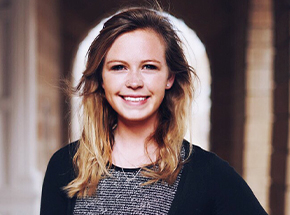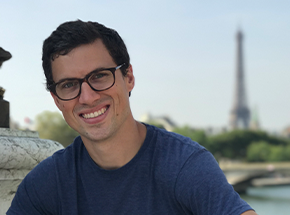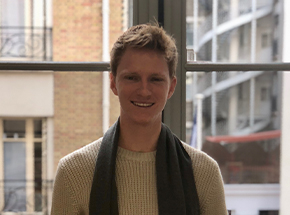- About AUP
- History of AUP
- Mission & Core Values
- Vision and Leadership
- AUP Recognition
- Alumni Success
- Campus Development
- Arts at AUP
- Policies & Guidelines
- Academics
- Undergraduate
- Graduate Programs
- MA in Diplomacy and International Law
- MA in Global Communications
- MSc in Human Rights and Data Science
- MA in International Affairs
- MA in International Affairs, Conflict Resolution, and Civil Society Development
- MSc in International Management
- MSc in Strategic Brand Management
- Find Your Thesis Advisor
- Previous Programs
- Cultural Program
- Faculty
- Summer School
- Research Centers
- The Center for Critical Democracy Studies
- The Center for Writers and Translators
- The George and Irina Schaeffer Center for the Study of Genocide, Human Rights and Conflict Prevention
- The Joy and Edward Frieman Environmental Science Center
- The Center for Media, Communication & Global Change
- Departments
- Academic Resources
- Academic Affairs
- Academic Calendar
- Academic Resource Center
- Library
- Registrar's Office
- Teaching and Learning Center
- Employer Network
- Accessibility & Accommodation Services
- Quai D'Orsay Learning Commons
- Paris as Classroom
- ACE Center
- Admissions
- Student Life
- Campus
- Get Involved
- Paris
- Support Services
- Student Development Help Desk
- Student Accounting Services
- Student Immigration Services
- Student Grievance Procedure
- Accessibility at AUP
- Diversity and Inclusion
- Health & Well-being
- Digital Student Handbook
- News
- Events
- AUP Giving
- Housing Offer for 2024-2025
- Housing | Spring 2024
- IRIS Project
- IT Services
- Alumni
- About AUP
- History of AUP
- Mission & Core Values
- Vision and Leadership
- AUP Recognition
- Alumni Success
- Campus Development
- Arts at AUP
- Policies & Guidelines
- Academics
- Undergraduate
- Graduate Programs
- MA in Diplomacy and International Law
- MA in Global Communications
- MSc in Human Rights and Data Science
- MA in International Affairs
- MA in International Affairs, Conflict Resolution, and Civil Society Development
- MSc in International Management
- MSc in Strategic Brand Management
- Find Your Thesis Advisor
- Previous Programs
- Cultural Program
- Faculty
- Summer School
- Research Centers
- The Center for Critical Democracy Studies
- The Center for Writers and Translators
- The George and Irina Schaeffer Center for the Study of Genocide, Human Rights and Conflict Prevention
- The Joy and Edward Frieman Environmental Science Center
- The Center for Media, Communication & Global Change
- Departments
- Academic Resources
- Academic Affairs
- Academic Calendar
- Academic Resource Center
- Library
- Registrar's Office
- Teaching and Learning Center
- Employer Network
- Accessibility & Accommodation Services
- Quai D'Orsay Learning Commons
- Paris as Classroom
- ACE Center
- Admissions
- Student Life
- Campus
- Get Involved
- Paris
- Support Services
- Health & Well-being
- Digital Student Handbook
- News
- Events
- AUP Giving
- Housing Offer for 2024-2025
- Housing | Spring 2024
- IRIS Project
- IT Services
- Alumni
Related Links
Student
Rosie
"It's a really wonderful program that AUP offers"
Related Graduate Programs :
What first inspired you to apply to and then attend AUP?
I'm originally from Minnesota, but I went to undergrad at Ithaca College in upstate New York. I had this fabulous class with this guy who was talking about Paris all the time and I was like, "I want to go to Paris and learn French!" So I first came to AUP in 2010 for the summer French immersion program. I had a fabulous time and I made friends that I still have today. They studied things like economics and business marketing. They're the kind of people who are now brokers and investment bankers and working on their PhDs. They’re all very incredible, very geeky people. They’re a fabulous group of friends. That was my first experience at AUP.
Since finishing my undergrad in Music – after a kind of crazy, circuitous route that involved taking circus arts classes, literature and drama courses in London, and singing opera in the Staatstheater in Germany – I've ended up working a lot with displaced populations. Before coming to AUP for graduate school I was working with refugees in Berlin on this common language of gesture, something that speaks to everyone. I really enjoy that moment when we can unpeel the layers of tension and get to actually work with someone instead of just working with fear.
You’re an International Affairs, Conflict Resolution & Civil Society Development MA Candidate. Can you tell us how you ended up choosing this course of study?
I was working with this startup NGO with a lot of young people who hadn't thought that, when you create an NGO, there are a lot of these political factors that you're not aware of and that you're participating in. I had a lot of self-realizations happen sort of all at once. Suddenly I felt somehow uncomfortable working with these populations because I didn’t know how I felt about acculturation or where I stood in German politics or where I stood in my own politics. In fact, I realized I didn’t really know anything about politics! That’s when I learned about the Masters in International Affairs, Conflict Resolution and Civil Society Development program at AUP that's half in French and half in English. I was talking to a friend of mine who had attended AUP for undergrad about the issues of acculturation that I was dealing with as well as the policies that had been constructed in response to the mass displacement of people in the early 2010s. She mentioned that there was a program at AUP that might address some of the professional frustrations I was having and encountering. Having already studied here and having several friends with diplomas from the university I knew that it would be a quality experience.
This program works in association with the Sorbonne. Half of the classes are taught in French at the Sorbonne while the other half are here on the AUP campus. The program offers students an opportunity to study in a French system and some of them decide to progress to a higher level and pursue their doctorate at the Sorbonne. It's a really wonderful program that AUP offers and is directed by Susan Perry, who happens to be my adviser. She's been fabulous in the creation of this program and in keeping those ties between our school and the Sorbonne healthy. You can do the program in one year, but I'm a slow learner. I need time and I want to learn this field well because I’ve never worked in political science in an official capacity before, so I’m doing the program in two years.
You are also heavily involved in student government. Can you tell us a little bit about how you see your roll as the Graduate Student President?
Continuing with this idea of working with people and with different populations, I wanted to make sure that I had an active way of being a member of my community… so I got involved in student government. My first semester I was the Vice President of the GSC. I quickly realized that there is room for structural improvement in the GSC so now, as the GSC President, I've seen my role as doing what I can to improve the structure of the GSC, continuing with our program of sponsoring events and activities and just passing the baton onto the next person because at the end, it's not about me. It's about how can we reinforce the structure. And I think any good leader will think of things like that – it's about how can I reinforce this greater whole.
Related
-

Beatrix
Student
Read MoreBeatrix
Student
I feel that the real-world experience that visiting professors bring to the classroom has an immense impact on students
-

Will Bisbee G’18
Alumnus
Read MoreWill Bisbee G’18
Alumnus
AUP definitely gave me rich life experiences.
-

Lance
Student
Read MoreLance
Student
I am here because I believe in fighting for a world where people can peacefully coexist while maintaining their individuality

